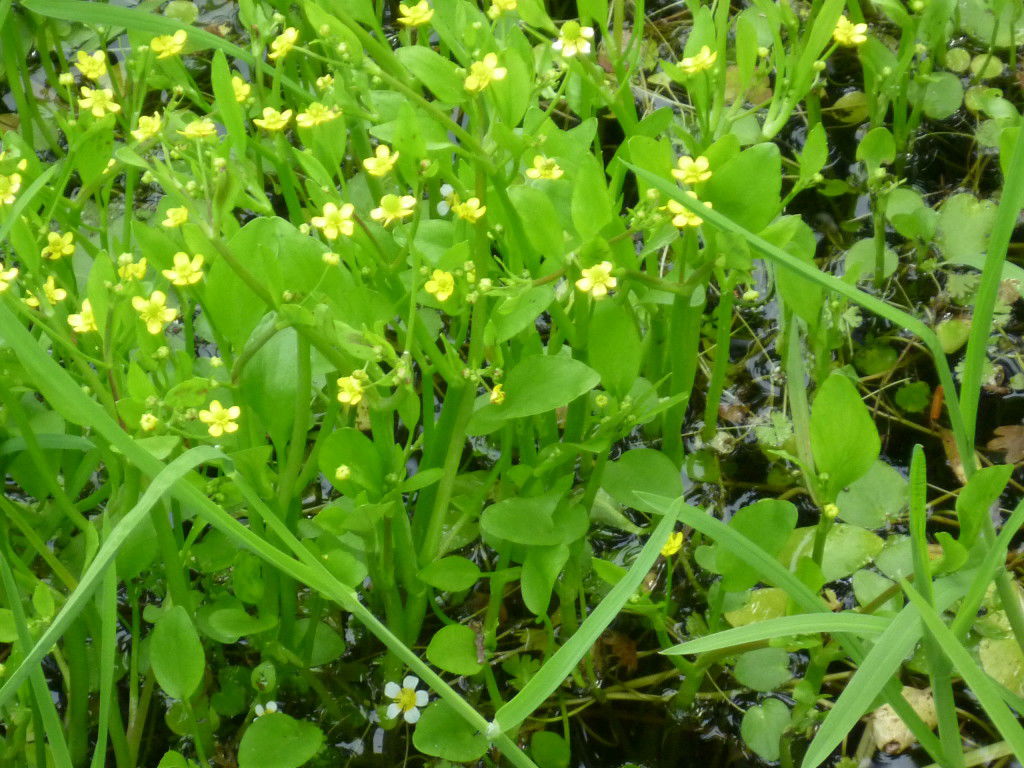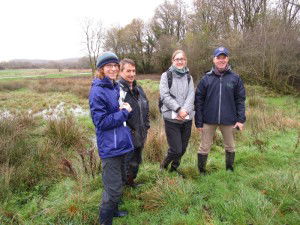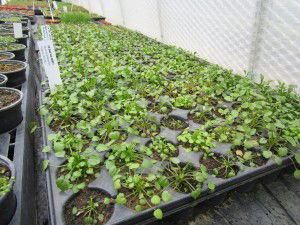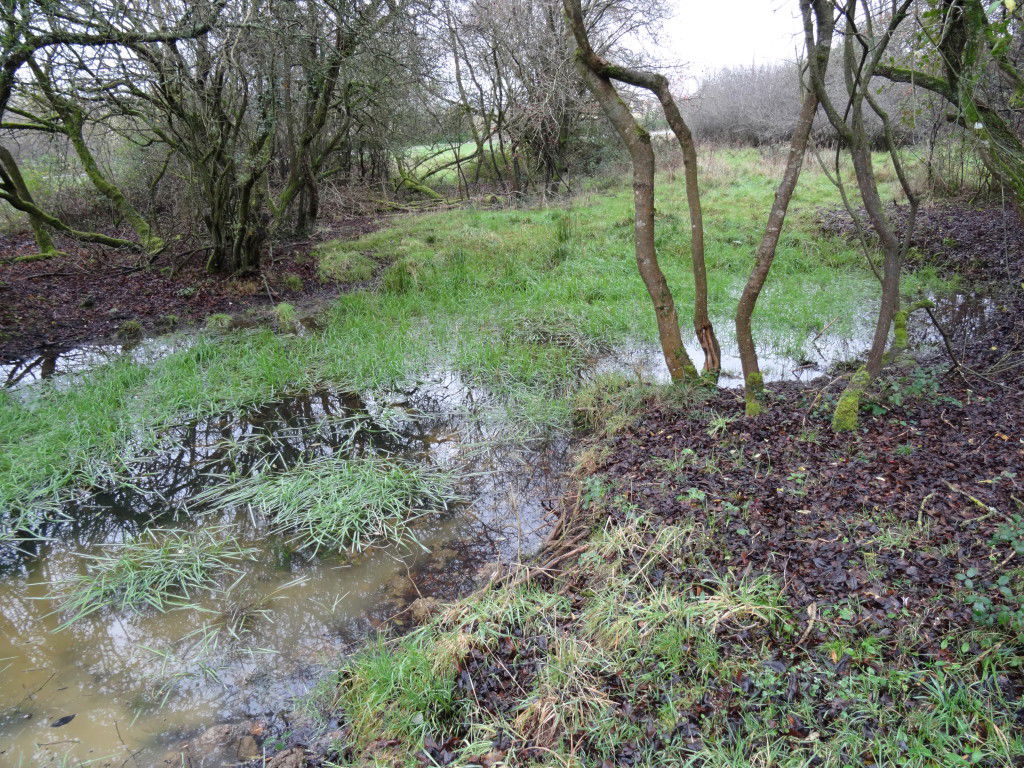Flagship Focus: Inglestone Common 2016
16th May 2016
Every month we are featuring one the many wonderful pond sites supported by our Flagship Pond project. Thanks to a grant from the Heritage Lottery Fund, we are able to help the people caring for some of the best pond sites in the country, making sure their special plants and animals have a secure future.
This month People, Ponds & Water Project Officer for Southern England, Francesca Dunn, talks about the work we’re supporting at Inglestone Common, South Gloucestershire.
 Adder’s-tongue Spearwort growing at its other UK site – Badgeworth Nature Reserve (By Sjeans (Own work) [CC BY-SA 3.0 (http://creativecommons.org/licenses/by-sa/3.0)], via Wikimedia Commons)Inglestone Common is one of only two sites in the UK for the endangered buttercup Adder’s-tongue Spearwort, so called because of the shape of its leaves. This plant thrives on the poached edges of ponds grazed by cattle, where the pond margins remain moist but free from water between June and September. Temporary ponds on grazed commonlands, which remain free from pollution, are an increasingly scarce resource in lowland England. Over time, the management at Inglestone has become unfavourable and in the last few years only a handful of plants have been recorded there. The site also supports three other priority pond species Fairy Shrimp, Tassel Stonewort, and Great Crested Newts.
Adder’s-tongue Spearwort growing at its other UK site – Badgeworth Nature Reserve (By Sjeans (Own work) [CC BY-SA 3.0 (http://creativecommons.org/licenses/by-sa/3.0)], via Wikimedia Commons)Inglestone Common is one of only two sites in the UK for the endangered buttercup Adder’s-tongue Spearwort, so called because of the shape of its leaves. This plant thrives on the poached edges of ponds grazed by cattle, where the pond margins remain moist but free from water between June and September. Temporary ponds on grazed commonlands, which remain free from pollution, are an increasingly scarce resource in lowland England. Over time, the management at Inglestone has become unfavourable and in the last few years only a handful of plants have been recorded there. The site also supports three other priority pond species Fairy Shrimp, Tassel Stonewort, and Great Crested Newts.  The steering group Ann Harris (South Gloucestershire Council), Richard Lansdown (national expert), Francesca Dunn (PPW Officer for Southern England) and Chris Cockel (Kew)
The steering group Ann Harris (South Gloucestershire Council), Richard Lansdown (national expert), Francesca Dunn (PPW Officer for Southern England) and Chris Cockel (Kew)
A Flagship Group currently comprised of national experts, lead organisations and the site managers, South Gloucestershire Council, have developed a plan for the site, to reintroduce appropriate levels of grazing for Adder’s-tongue Spearwort and Tassel Stonewort, and remove dense scrub which is inhibiting germination, whilst retaining sufficient habitat for Great Crested Newts.
The PPW Flagship Project with funding from the Heritage Lottery Fund and Valpak, has bought extra resources to the project. We have been able to fund work by the Millennium Seed Bank at Kew to cultivate seeds collected historically from Inglestone. This will provide material for reintroduction at the site. The current plan is to do three separate plantings the first one in April of the more forward of the autumn germinators, a second planting in May to include spring germinators, and a third in June. Each plant is capable of producing over 820 seeds in one year, with the largest plants able to produce 3080 seeds (Salisbury 1970). Under the new management regime the population should be restored to its former strength in no time!
 The second batch of Adder’s-tongue Spearwort seedlings to germinate from the Millennium Seedbank. Wakehurst are also planning to produce a public display board about the project.
The second batch of Adder’s-tongue Spearwort seedlings to germinate from the Millennium Seedbank. Wakehurst are also planning to produce a public display board about the project.
The Flagship Project will also provide opportunities for the local community to get involved with the project. This year we’ll be running a series of local talks and site walks, and producing an information pack about the site to enthuse local people in the project and tell them about the range of ways they can get involved. We will also be offering training and mentoring by Richard Lansdown (the national expert for Adder’s-tongue Spearwort) to support a local group of volunteers who can undertake monitoring on the site.
 One of the ponds on Inglestone Common being managed to improve conditions for Adder’s-tongue Spearwort and Tassel Stonewort.
One of the ponds on Inglestone Common being managed to improve conditions for Adder’s-tongue Spearwort and Tassel Stonewort.
Want to know more?
- Read more about the Flagship Ponds project
- Learn about other parts of our People, Ponds & Water project, and how you can get involved
- Find out how your support can make a difference for freshwater wildlife
- Join the mailing list to get articles like this, and more, direct to your inbox
